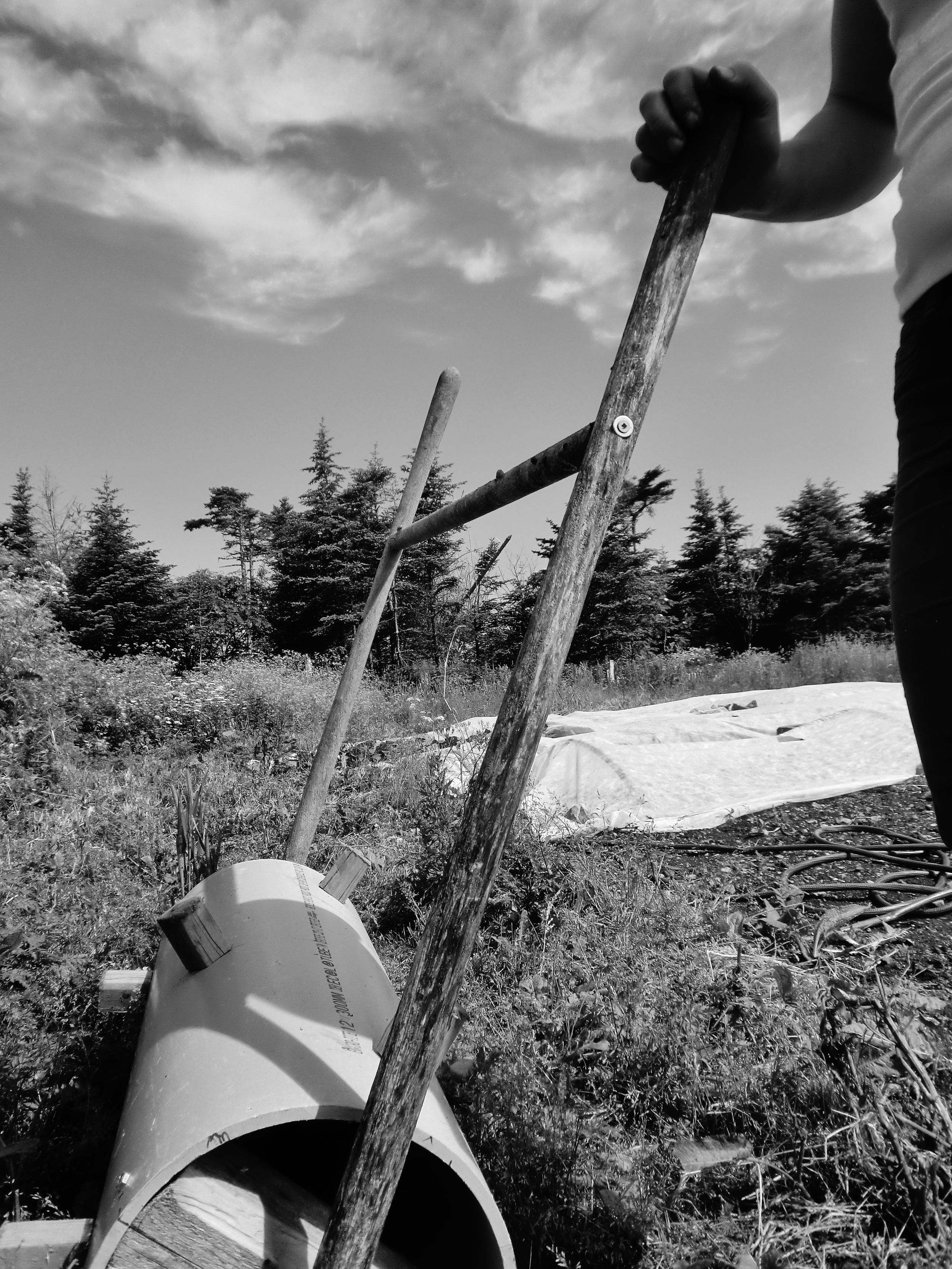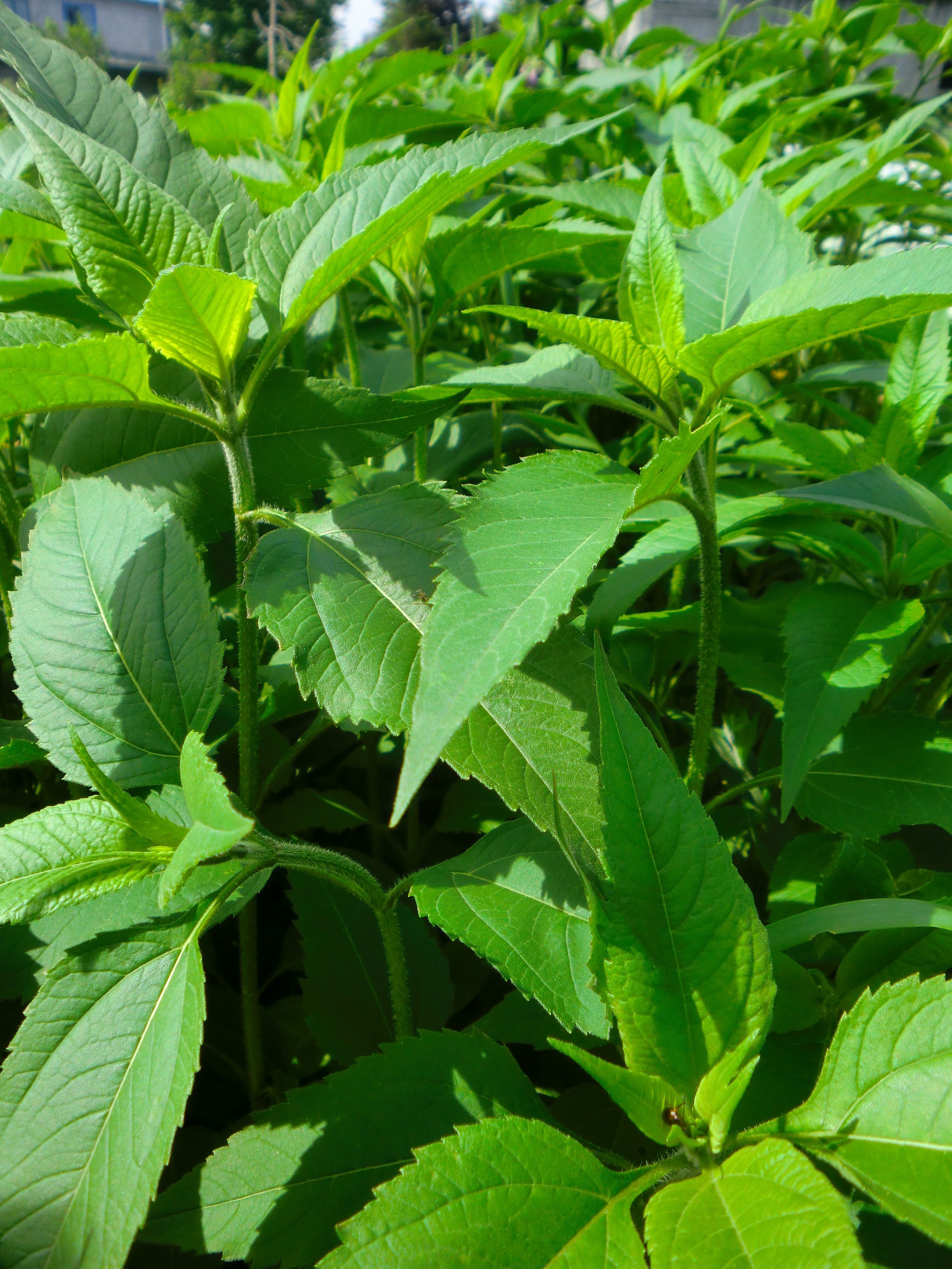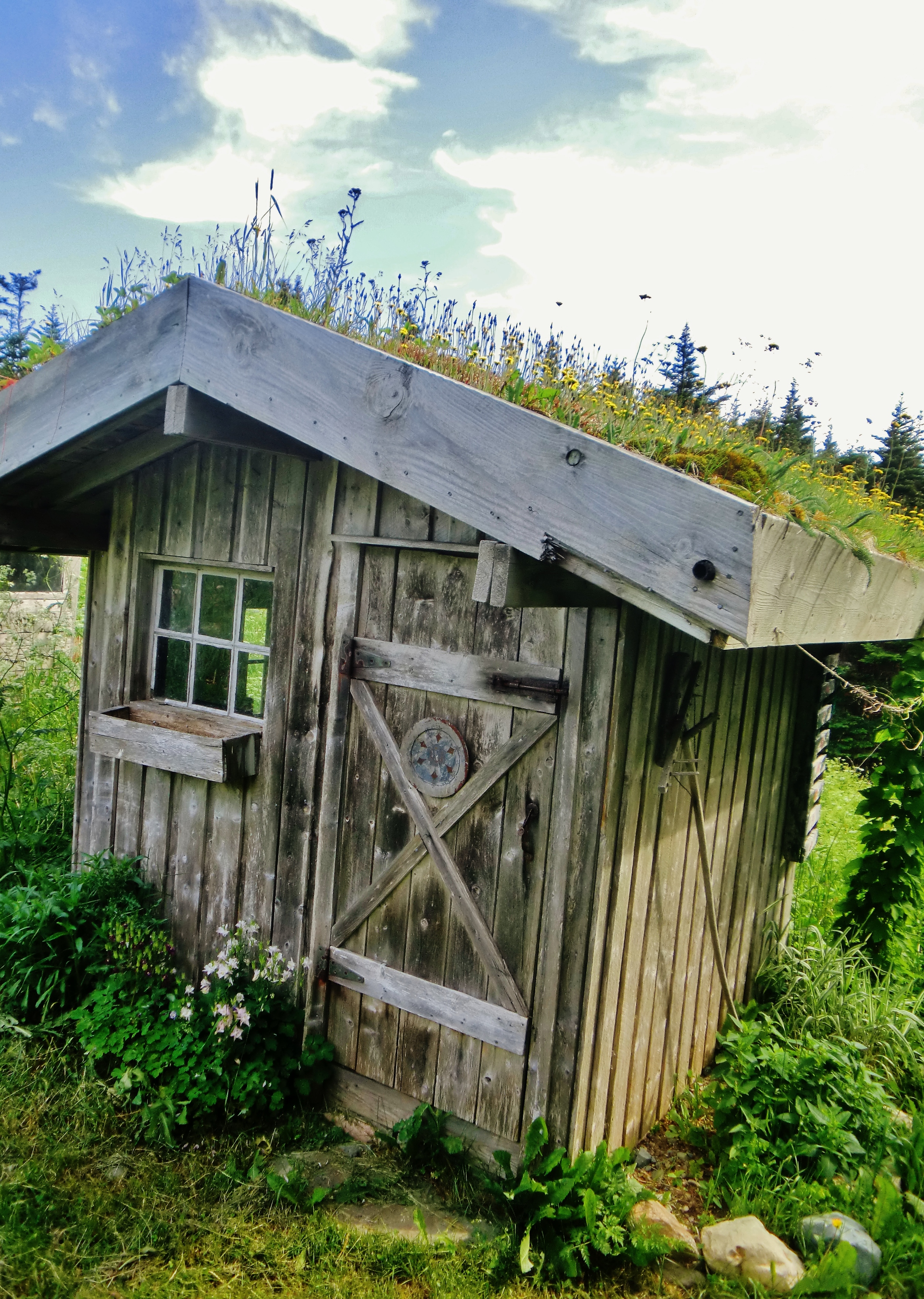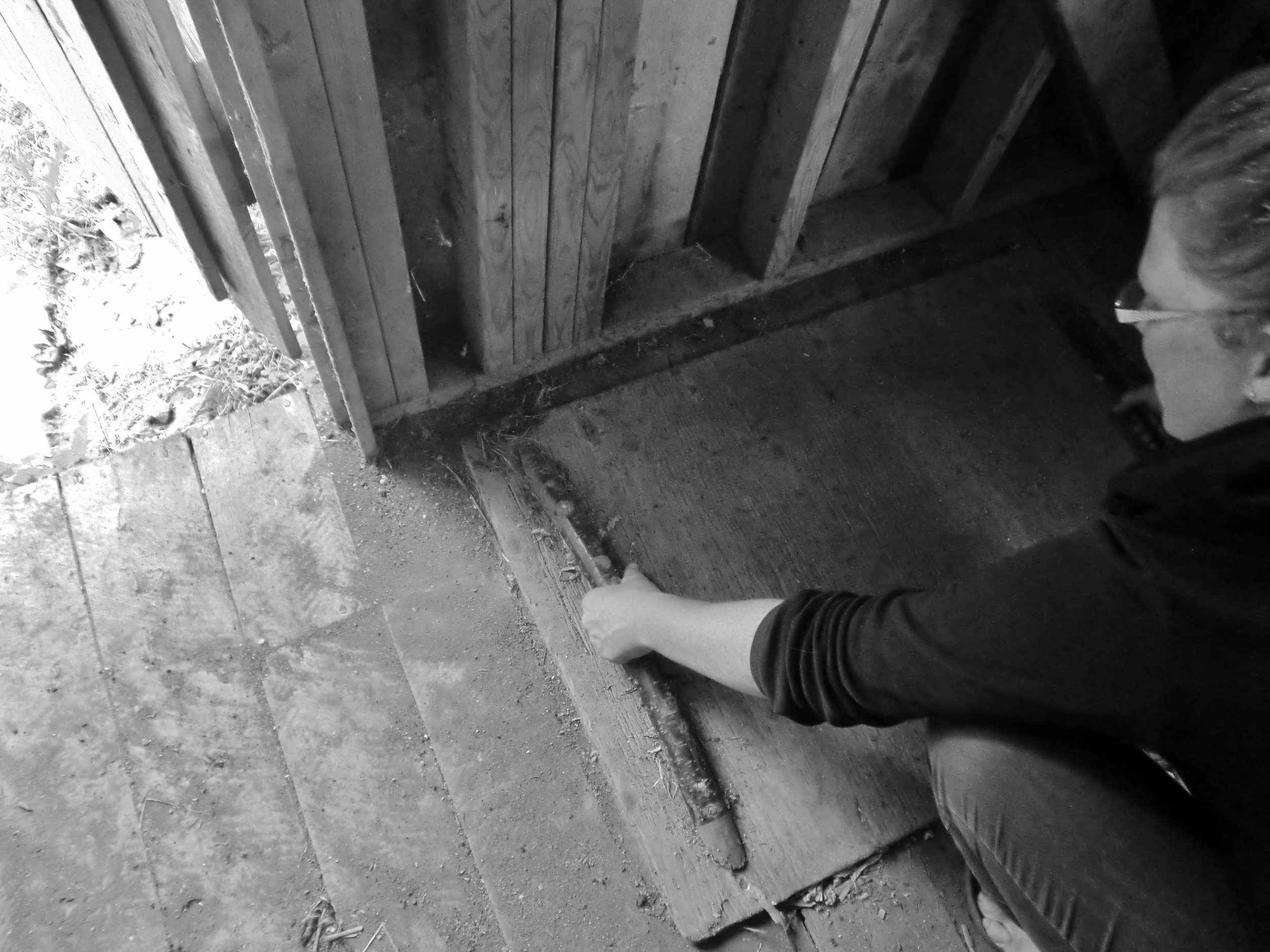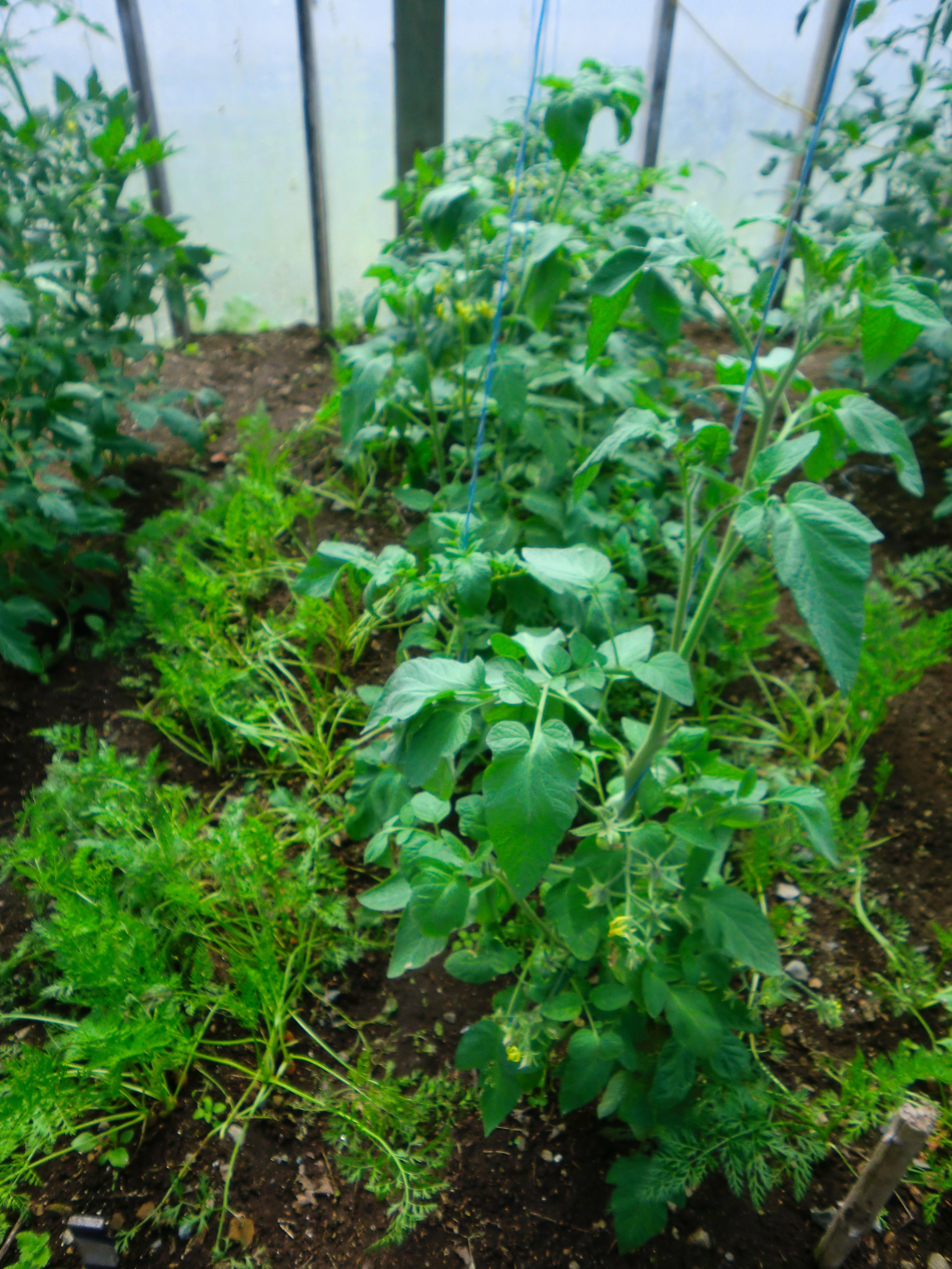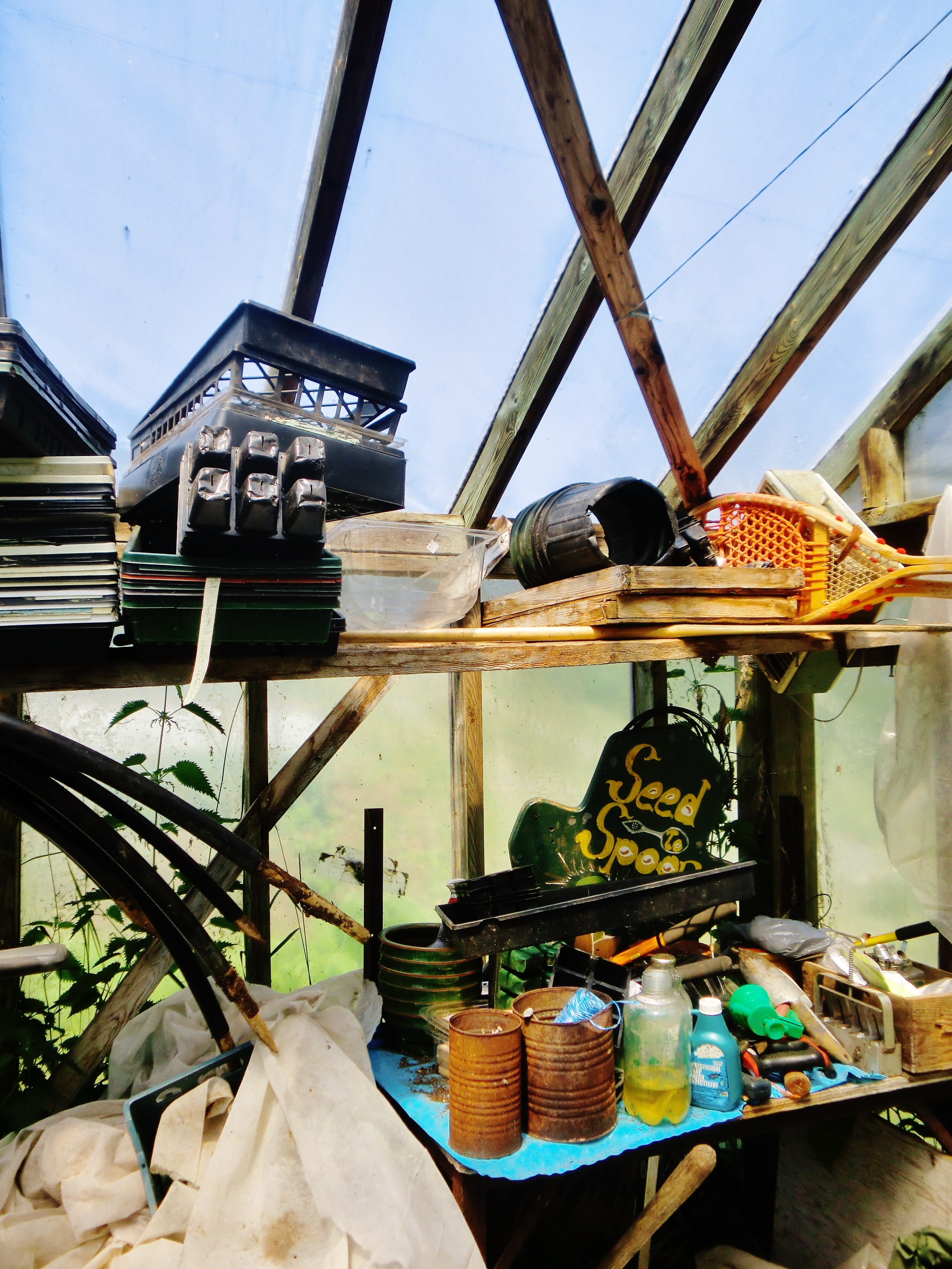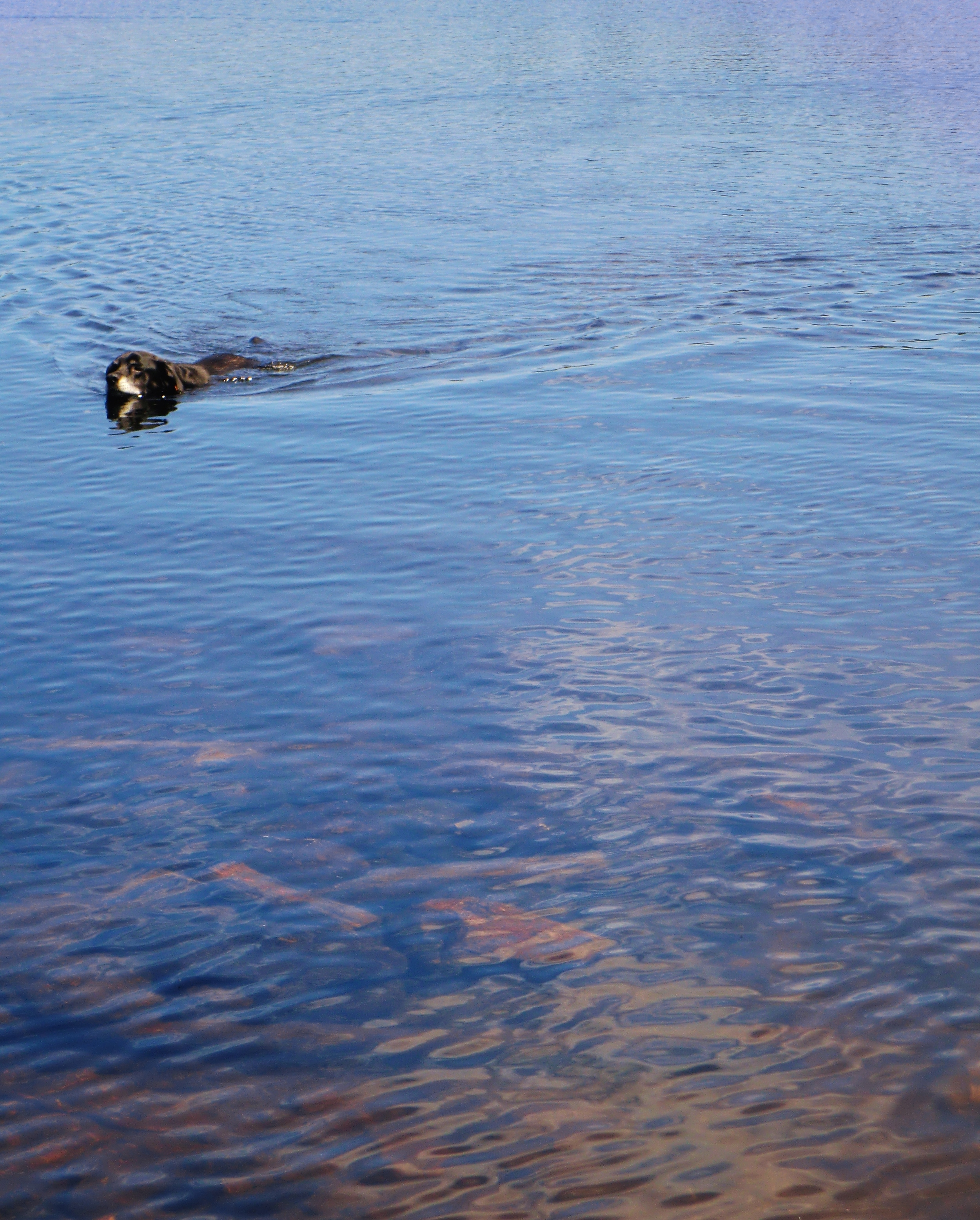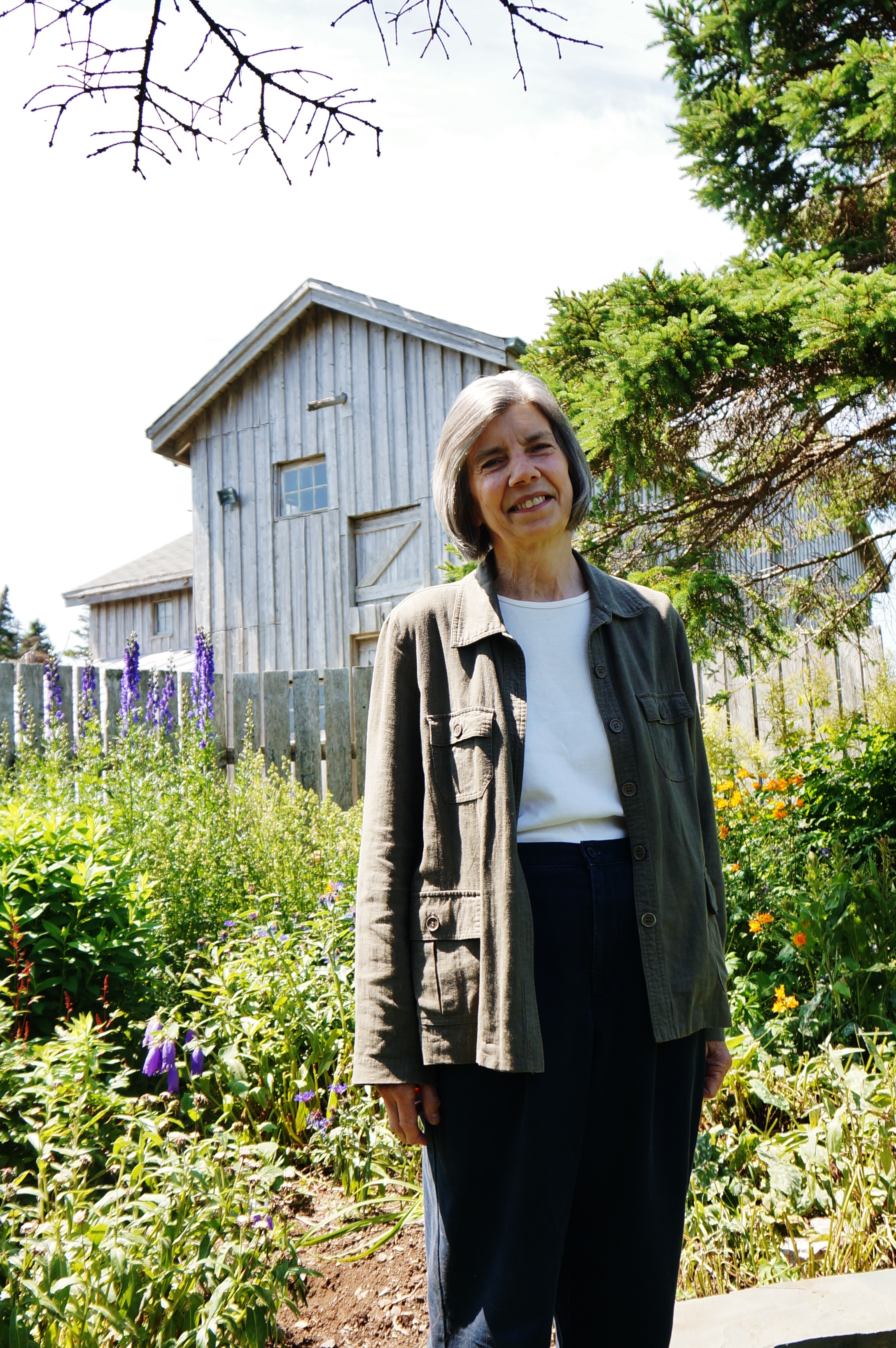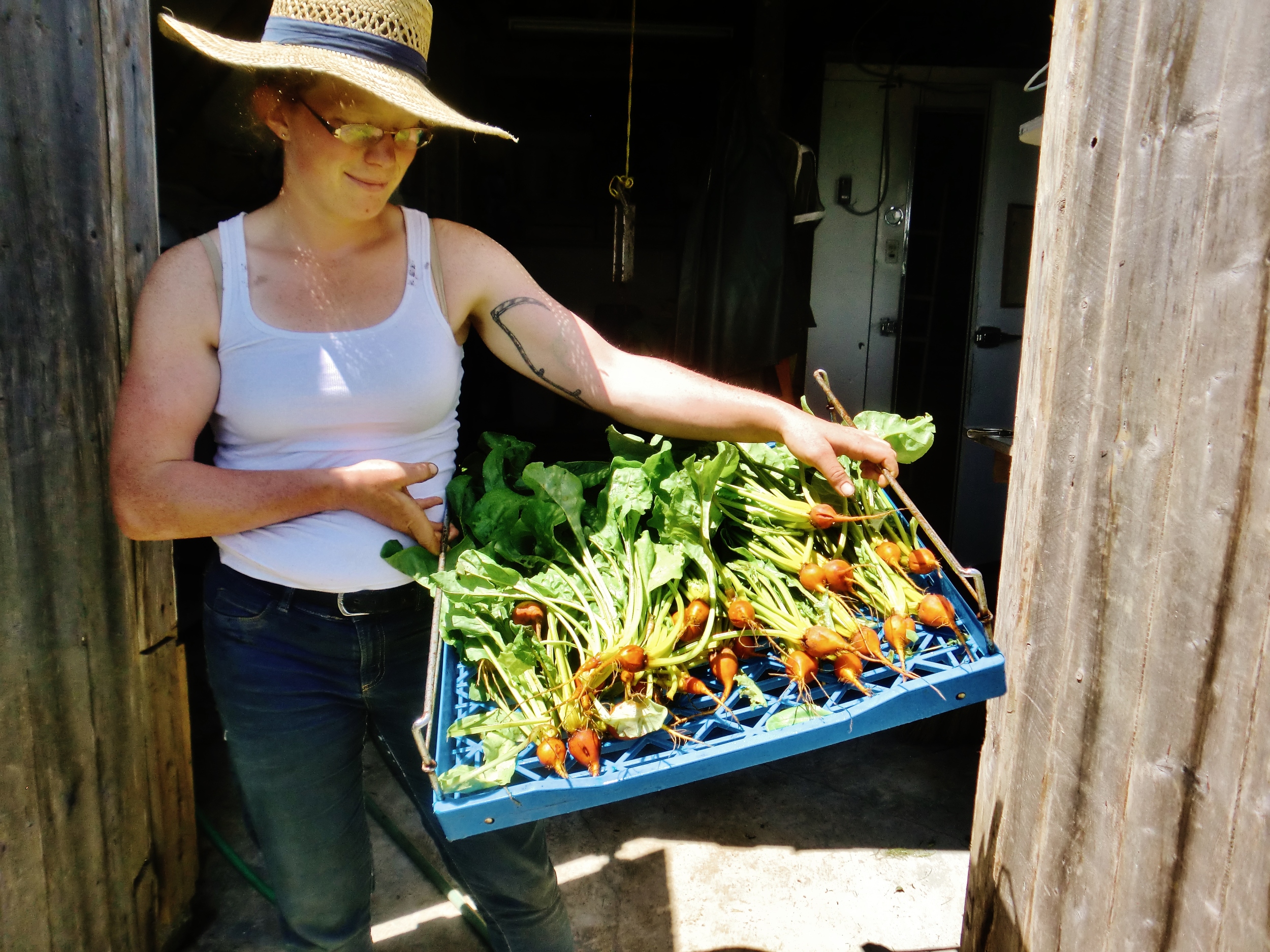This post is the fourth in a series that Sarah Campbell, an intern with FSN, will be doing around the International Year of Family Farming this summer, gathering stories of family farming from around the Avalon Peninsula. Look for more stories in the coming weeks!
A few weekends ago I was happy to spend some time at the Lien Family Farm, speaking with Judy Lien and Sarah Crocker, who now grows on the land for Seed to Spoon. Seed to Spoon started growing at the Lien Farm in 2009 and continues its traditions of community-centred agriculture and land preservation. It was a pleasure to speak with both of them.
The land has a long history. Judy and her late husband Jon farmed the land for almost forty years – since 1972 – working to grow food in a way that sustained the land and the community. With Mike Rabinowitz at The Organic Farm, the Lien Farm started a CSA in 1996 - a true innovation in the province - eventually growing food for over one hundred families. Connections made through the farm went beyond food. Judy speaks about the ways in which Jon was able to connect with people and build community: “He encouraged others to grow gardens. Whenever he would find a source of garden inputs, he circulated the news in a little newspaper called Odds and Hens, peat, lime, manure, mulch. Jon often rented the truck and delivered these garden inputs to friends and neighbours. He loaded up his Honda tiller and broke ground for people's first attempts at gardening. He endeared himself to many! From his youth he yearned to be a farmer. He succeeded through repetition in the rocky soil of Newfoundland.” In 2011, a year after Jon's death, he and Judy received the Gerrit Loo Memorial Award from the Atlantic Canada Organic Regional Network (ACORN) honouring the work they had done in their nearly forty years working the land.
“[Jon] encouraged others to grow gardens. Whenever he would find a source of garden inputs, he circulated the news in a little newspaper called Odds and Hens.”
Now renting land at the Lien farm, Sarah speaks very highly of Judy and of Jon, acknowledging that the work she does now is only made possible because of the long years that they spent building the farm – its buildings, its soil, its connections “I meet people,” she says, “who when I explain where I am and what I'm doing, they say, Oh, the Lien Farm! … Maybe they just remember dropping by to get vegetables... There's this huge network of people that feel connected to here, because of … [Jon's] outgoing outreach.” She adds, “I feel lucky to have inherited all of this infrastructure because it's kept my start-up costs and debt non-existent. That would not be happening without the excellent work that Jon and Judy have put into this place.” And the knowledge Judy has garnered from so many years farming is invaluable for Sarah today. For Sarah, Judy has the particular virtue of being someone who brims full with knowledge, and yet lets her make her own mistakes. Often, she says, it’s only months or a year down the road that she'll recognize how right Judy was.
On the two acres of land that Sarah cultivates, there are an incredible variety of plants growing up. Carrots, basil, tomatoes, tomatillos, and seedlings overflow in one greenhouse. Grapevines grow up in the corner. Peas, rhubarb, squash, onions, garlic, lettuce, arugula, cabbage and beans (to name a few) are coming up in the field. Sarah calls her way of growing “biointensive.” That means that she grows a lot in a small space – often two crops in one season on the same bit of land – trying to get the most from the earth.
Too, in and amongst the fields, there are a wide variety of outbuildings and structures – barns, a root cellar, a home, a cabin, and greenhouses, all using a “rough building” style that Jon favoured. Last winter, for the first time, Judy stored potatoes for Sarah in the root cellar over the winter packed in sawdust, which Sarah included as part of her CSA shares in the spring.
“I had a woman come to visit me once. After spending several years trying to settle into Newfoundland she was reluctantly preparing to leave. When she looked around the farm, she was almost in tears. She looked at me and said, 'I never knew this could all be possible here.'”
For the last word, and looking toward the future, I'll leave it to Judy and Sarah. They speak of farming in this province – perhaps not the first that comes to mind when farming is mentioned. “It is possible here,” says Judy. “It just takes a long time. … It's an attitude that we need our young people to have that there is a future in farming. … In a way our farm targets young farmers, and seeing that they get an opportunity to see that this is possible. I had a woman come to visit me once. After spending several years trying to settle into Newfoundland she was reluctantly preparing to leave. When she looked around the farm, she was almost in tears. She looked at me and said, 'I never knew this could all be possible here.' I was thankful that we had persevered, always seeking the secrets that made 'growing' possible in Newfoundland.”
“This farm,” says Sarah, “could be a showpiece […] of what is possible. [...] There needs to be a succession between generations. [...] It's so precious. The fields that have taken people generations to clear – those being turned into lawns is quite sad. It's quite a lot of work to get agricultural land here, so I think we should treat it very well when we have it.”
It won't be done by farmers alone – both Sarah and Judy speak of the need for support from the province and municipalities, both to plan for the preservation of agricultural land and to invest in farmers and the business of farming. But the work of Jon, Judy, and Sarah, and the sense of possibility that the Lien Farm and Seed to Spoon offer, seems a very good place to start.
To become a member in Seed to Spoon's CSA, you can contact Sarah in the spring. In previous years, the CSA has filled up by early May. You can also find Seed to Spoon's food at the St. John’s Farmer’s Market on Saturdays from 10-2pm, June to October.
And to follow along with the farm throughout the season, you can visit the Seed to Spoon Facebook page for photos, news, and recipes (and the occasional moose encounter video!).
Sarah: “This is a very, very exciting time right now ... Peas!”
Sarah: “This is a thing I made that I'm really excited about, called a dibbler. It’s a piece of scavenged sewer pipe, on a rolling mechanism. On a prepared bed, you just roll it down and it marks an even spacing. […] It saves me a lot of time. […] I've been meaning to make one for like six years, but I haven't, and now I have, and it feels great, and the rows are straight.”
[soundcloud url="https://api.soundcloud.com/tracks/161648099" params="auto_play=false&hide_related=false&show_comments=true&show_user=true&show_reposts=false&visual=true" width="100%" height="150" iframe="true" /]
“What's that growing up there?”
Sarah: “This is jerusalem artichoke. This is what it looks like after it's done and it starts to grow from its delicious tuber. Most of what I do is annual vegetable crops. But we have been adding perennial things.”
Sarah: “This is a root cellar that Judy and Jon built. We had delicious potatoes for the first week of the CSA this year that stayed in the root cellar all winter.” “That’s a great thing to have.” Sarah: “Yeah. It felt really good.”
[soundcloud url="https://api.soundcloud.com/tracks/161648092" params="auto_play=false&hide_related=false&show_comments=true&show_user=true&show_reposts=false&visual=true" width="100%" height="150" iframe="true" /]
Judy: “I was so thrilled to learn of row cover so that you could protect your vegetables from insects [...] also it raises [the] temperature four degrees […] I don't know what we'd do without really.”
Sarah: “I use a lot of floating row cover. It's a white spun plastic. It lets light and water through, but it does modify the environment enough that it makes a sort of shelter – [it] keeps the wind off, and raises the temperature … Zucchini!”
Judy: “Sarah is here in April, and she gets things started, and grows unusual crops in the greenhouse, like carrots. […] That's been a real eye-opener for me.” Sarah: “The carrot idea I totally lifted from Eliot Coleman.” Judy: “You did.”
[soundcloud url="https://api.soundcloud.com/tracks/161648101" params="auto_play=false&hide_related=false&show_comments=true&show_user=true&show_reposts=false&visual=true" width="100%" height="150" iframe="true" /]
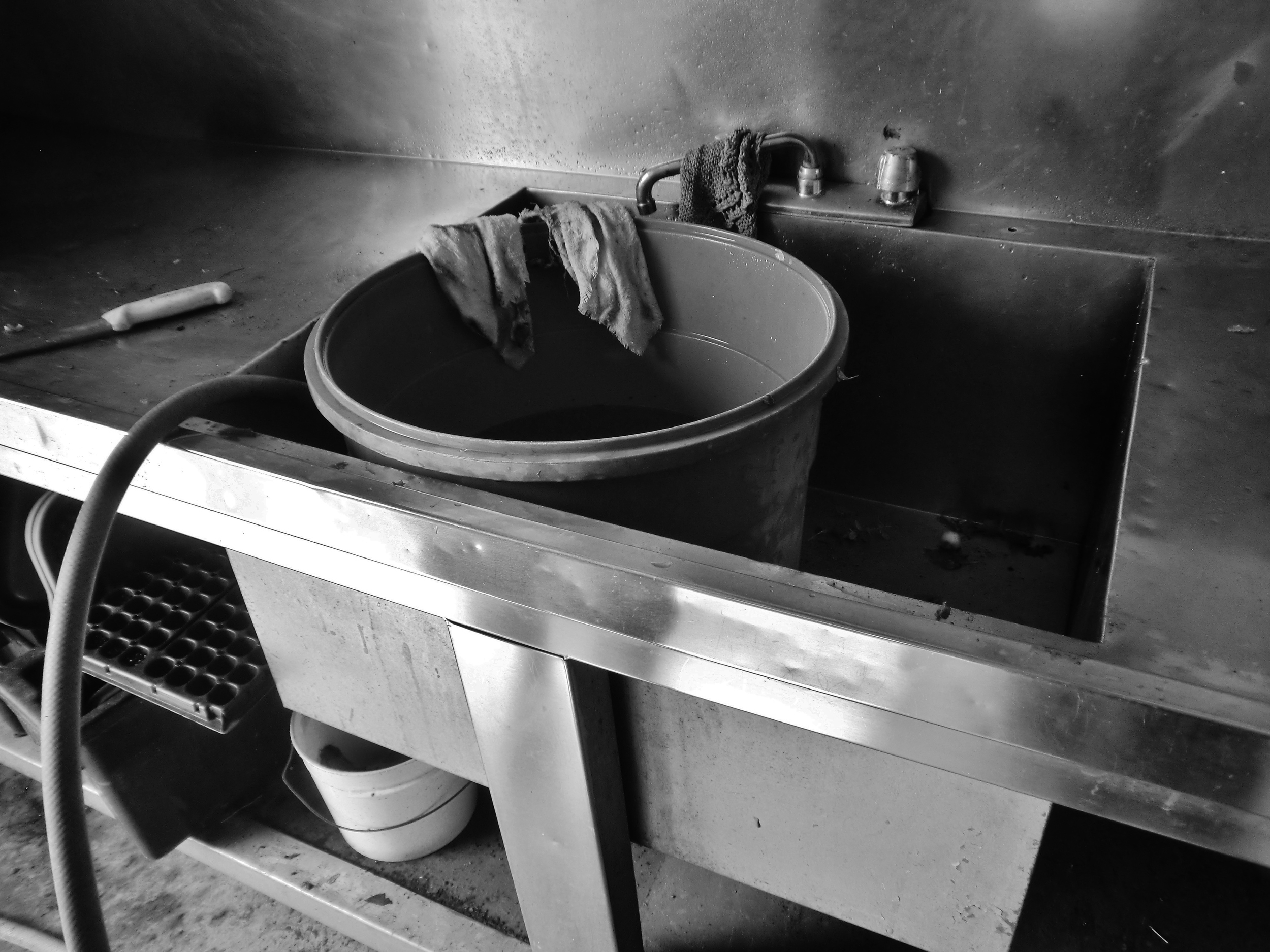
Sarah: “This is where the magic happens.”
[soundcloud url="https://api.soundcloud.com/tracks/161648097" params="auto_play=false&hide_related=false&show_comments=true&show_user=true&show_reposts=false&visual=true" width="100%" height="150" iframe="true" /]
Sarah: “Who's the best dog in the whole pond?”
[soundcloud url="https://api.soundcloud.com/tracks/161648090" params="auto_play=false&hide_related=false&show_comments=true&show_user=true&show_reposts=false&visual=true" width="100%" height="150" iframe="true" /]
Thank you Judy! Thank you Sarah!





